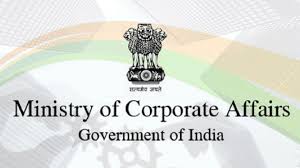Private Limited Company Registration
The most famous and commonly used form of corporate legal organisation in India is private limited company. The incorporation of private limited corporations is covered by the Corporate Law of 2013, the Company Laws of Corporation of 2014. A minimum of two owners and two managers is mandatory to incorporate a private limited company.
Section 3(1) of the Companies Act, 2013 provides that a company may be formed for any lawful purpose by—
(a) seven or more persons, where the company to be formed is to be a public company;
(b) two or more persons, where the company to be formed is to be a private company; or
(c) one person, where the company to be formed is to be One Person Company that is to say, a private company, by subscribing their names or his name to a memorandum and complying with the requirements of this Act in respect of registration.
A company formed under the Companies Act, 2013 may be either—
(a) a company limited by shares; or
(b) a company limited by guarantee; or
(c) an unlimited company.
The Companies Act, 2013 prescribes specific procedures for incorporation and registration of companies. A company can be formed either by:—
(i) incorporation of a new company; or
(ii) conversion of existing business (partnership firm or co-operative societies, society, limited liability partnership, or any other business entity) formed under any other law for the time being in force which applies for registration under this Part into company under the provisions of Chapter XXI, Part I and of the Companies Act, 2013; or
(iii) companies incorporated under section 8 of the Companies Act, 2013. The incorporation (birth) and strike off of name, winding up and dissolution (death) of a company are governed by the provisions of the Companies Act, 2013. Therefore, each company is subject to the provisions of the Companies Act, 2013, as may be amended from time to time. The following procedure involves for incorporation of a company.
STEP-BY-STEP FORMALITIES FOR FORMATION OF A NEW COMPANY
Persons desirous of forming a company must adhere to the step-by-step procedure as discussed below:
- Selection of type of the company.
- Selection of name for the proposed company.
- Apply for issuance of Directors Identification Number (DIN) and Digital Signatures, if does not have, however as per amendment in section 153 of the Companies Act, 2013 by the Companies (Amendment) Act, 2017, w.e.f. 9-2-2018, the Central Government may prescribe any identification number which shall be treated as DIN.
- Apply for reservation of name in the Form RUN or Form No.INC-32 (SPICe).
- Drafting of Memorandum and Articles of Association.
- Payment of stamp duty electronically, digitally signing and e-filing of various documents with the Registrar.
- Payment of registration and filing fees.
- Obtaining Certificate of Incorporation.

































.jpg)
.jpg)



.jpg)
.jpg)
.jpg)
.jpg)










